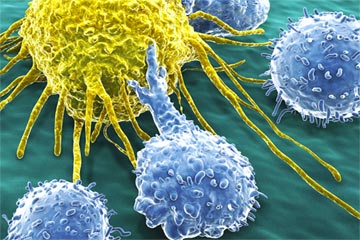Hematologic Cancer Treatment
Overview
Hematologic cancers begin in blood-forming tissue, such as the bone marrow, or in the cells of the immune system. Examples of hematologic cancer include leukemia, lymphoma, and multiple myeloma. It’s also referred to as blood cancer.
Lymphoma
Lymphoma is cancer that begins in cells of the lymph system. The lymph system is part of the immune system, which helps the body fight infection and disease. Because lymph tissue is found all through the body, lymphoma can begin almost anywhere.
The two main types of lymphoma are Hodgkin lymphoma and non-Hodgkin lymphoma (NHL). These types of lymphoma can occur in both children and adults.
Leukemia
Leukemia is cancer of the blood cells. Most blood cells form in the bone marrow. In leukemia, cancerous blood cells form and crowd out the healthy blood cells in the bone marrow.
The type of leukemia depends on the type of blood cell that has become cancerous. For example, acute lymphoblastic leukemia is a cancer of the lymphoblasts (white blood cells that fight infection). White blood cells are the most common type of blood cell to become cancer. But red blood cells (cells that carry oxygen from the lungs to the rest of the body) and platelets (cells that clot the blood) may also become cancer.
Multiple Myeloma
Plasma cells are cells in the immune system that make antibodies, which help the body fight infection and disease. Plasma cell neoplasms are diseases in which the body makes too many plasma cells in the bone marrow and these cells are abnormal. The abnormal plasma cells make M proteins, which are abnormal antibodies that build up in the bone marrow and can cause the blood to thicken or damage the kidneys.
The abnormal plasma cells can also form tumors in the bone or soft tissue. When there is only one tumor, the disease is called a plasmacytoma. When there is more than one tumor, the disease is called multiple myeloma. Both are malignant (cancer).
Multiple myeloma may not cause signs or symptoms for a long time and is often not found until it is advanced. Myeloma tumors can weaken the bone, cause too much calcium in the blood, and damage the kidneys and other organs. Bone pain is a common symptom of advanced multiple myeloma. Other signs and symptoms include frequent infections, anemia, bleeding, numbness or tingling, and weakness.
Summit Cancer Centers has the advanced treatment methods needed to treat hematologic cancers, including chemotherapy, surgery, and radiation therapy.










